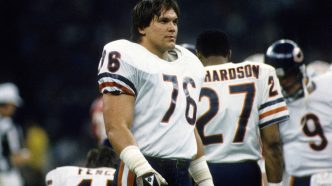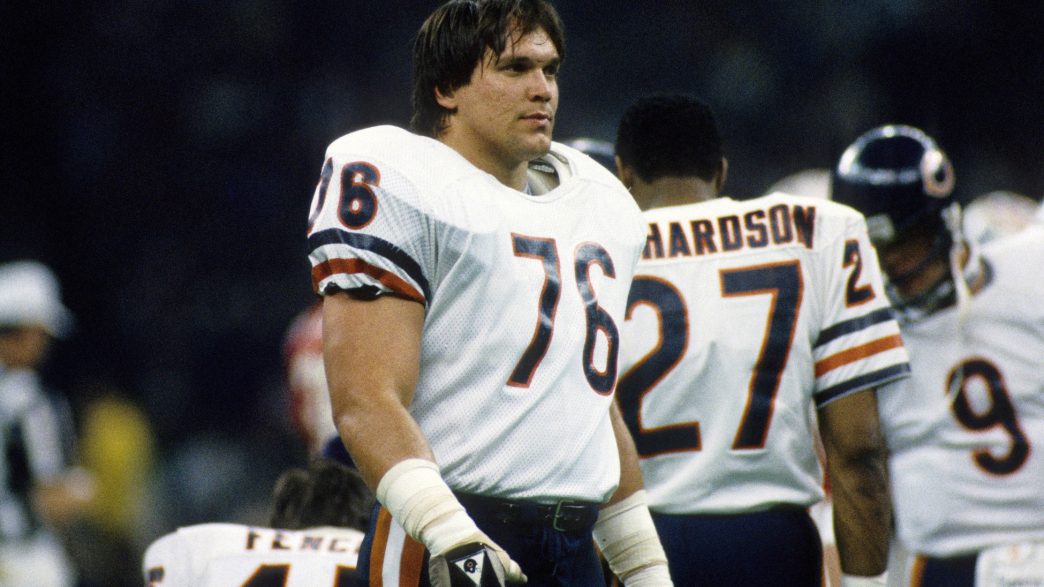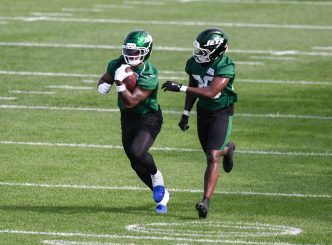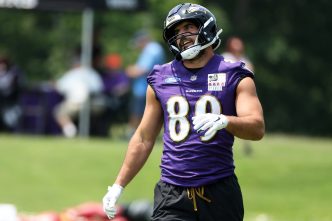Steve “Mongo” McMichael, a titan of the defensive line and a key player on the Chicago Bears’ legendary 1985 Super Bowl championship team, passed away this Wednesday after a brave struggle with ALS. He was 67 years old, leaving behind a legacy that resonated deeply within the Windy City and across the NFL landscape.
McMichael’s career was nothing short of remarkable. An All-Pro selection in 1985 and 1987, he carved his name into history with an impressive total of 92.5 sacks, ranking just behind Richard Dent on the Bears’ all-time list. His iron will was exemplified by the fact that he set a franchise record by playing in 191 consecutive games from 1981 to 1993, a feat that speaks volumes about his durability and commitment to the game. His football journey concluded in 1994 with the Green Bay Packers, capping off a 15-year career that left fans and foes alike in awe.
Personality wise, McMichael was larger than life. His outspoken nature seamlessly transitioned him into the world of professional wrestling, where he found success in the 1990s amidst the thrilling competition of the “Monday Night Wars.” Starting as a color commentator, he later teamed up with the iconic Ric Flair in the infamous “Four Horsemen,” showcasing a charisma that captivated audiences beyond just football.
In April 2021, McMichael publicly shared his diagnosis with ALS, also known as Lou Gehrig’s disease or motor neuron disease. This condition, which gradually robs individuals of muscle control, became a defining part of his final chapters. “I promise you, this epitaph that I’m going to have on me now? This ain’t ever how I envisioned this was going to end,” McMichael once shared, revealing both his unyielding spirit and his vulnerability.
His wife, Misty McMichael, spoke poignantly about his struggles, underscoring his fear of losing a battle he fought with unmatched bravery. “He’s a good man. He’s gonna be in heaven before any of us, so I don’t know what he’s afraid of,” she expressed during the 2024 Hall of Fame induction, reflecting both admiration and concern as they navigated this challenging journey together.
A Houston native, McMichael’s football beginnings were rooted in a successful college career at Texas, which ultimately led to his selection by the New England Patriots in the third round of the 1980 NFL Draft. However, his time with the Patriots was short-lived, as he played only six games before being released. It was his edgy persona, which sometimes got him into trouble, that ultimately found a home in Chicago—a city that embraced his style.
Walking into George Halas’ office was a surreal moment for McMichael, likening the encounter to stepping into a classic gangster film. Halas, the legendary “Papa Bear,” made it clear he expected McMichael to remain unapologetically himself, saying, “I’ve heard what kind of dirty rat you are in practice. Don’t change, Steve.” From there, McMichael would go on to become part of one of the greatest defenses ever assembled in NFL history.
While his on-field persona projected ferocity, those who knew him best cherished his generosity and wit. Longtime friend Dave Siden highlighted McMichael’s storytelling prowess and his kind-hearted nature, recalling how he would share his preseason paychecks with team trainers and bring holiday joy to children in need.
Throughout his storied career, McMichael played alongside legends like Dent, Mike Singletary, and Dan Hampton. The 1985 Bears defense, a force of nature that dominated opponents, ultimately paved the way for the franchise’s sole Super Bowl win. That season alone, McMichael earned All-Pro status, contributing with eight sacks—a hallmark of his tenacity and skill.
The Chicago Bears honored McMichael’s legacy, stating, “Steve ‘Mongo’ McMichael was a Bears legend, and his courageous battle against ALS inspired us all. Our hearts go out to his family, friends, and teammates.” Pro Football Hall of Fame president and CEO Jim Porter echoed this sentiment, recognizing McMichael’s relentless spirit both on and off the field, reaffirming that no player fought harder than Steve McMichael.
A complicated personal life accompanied his illustrious career; McMichael divorced his first wife, Debra, in 1998, before finding love again with Misty Davenport in 2001. Together, they welcomed their daughter, Macy, in 2008.
Steve “Mongo” McMichael leaves behind a legacy not just defined by his athletic feats but also by his larger-than-life personality and the indelible impact he made on the game and those around him. He will be remembered not only as a fierce competitor but as a friend, a family man, and a true icon of Chicago sports.








